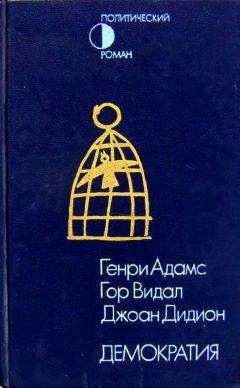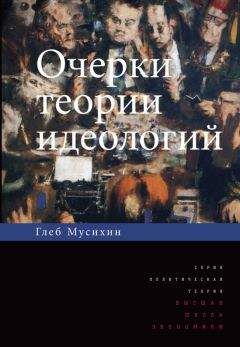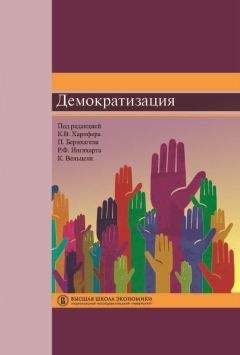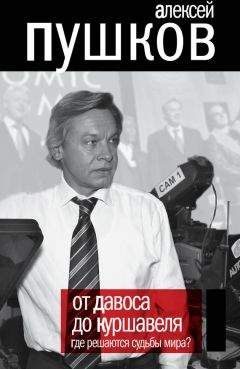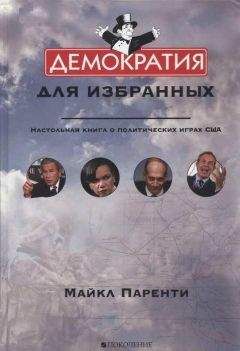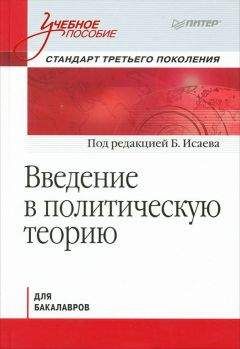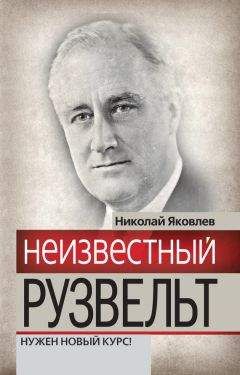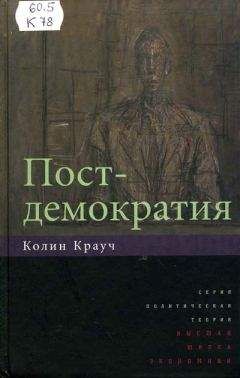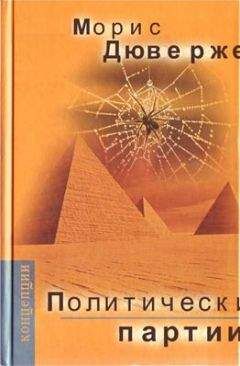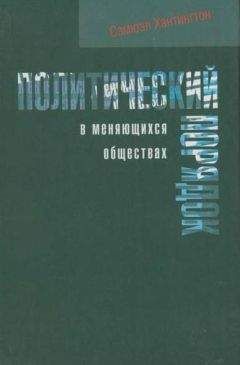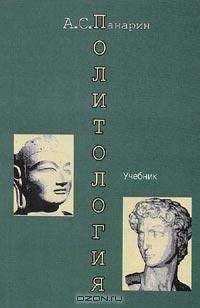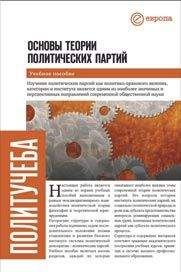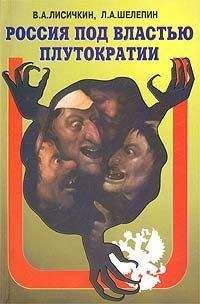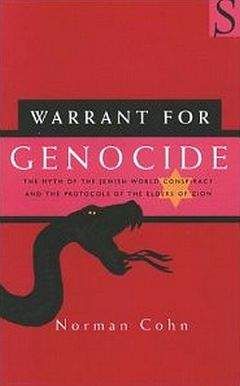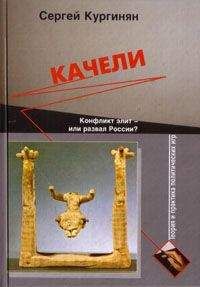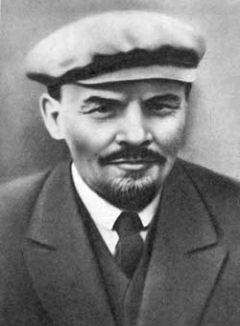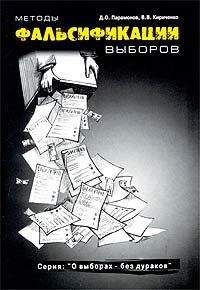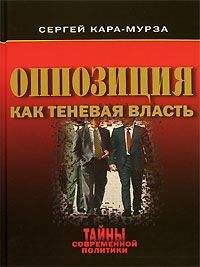Чарльз Эндрейн - Сравнительный анализ политических систем
Скачивание начинается... Если скачивание не началось автоматически, пожалуйста нажмите на эту ссылку.
Жалоба
Напишите нам, и мы в срочном порядке примем меры.
Описание книги "Сравнительный анализ политических систем"
Описание и краткое содержание "Сравнительный анализ политических систем" читать бесплатно онлайн.
Когда мы смотрим на политическую карту мира, то вряд ли нам приходит в голову мысль провести скрупулезный анализ всего многообразия существующих на Земле политических систем. Эту сложную, но выполнимую задачу поставил в своей книге профессор Ч. Эндрейн. Он не только сравнил различные политические системы, выявил общее и особенное в их функционировании, но и рассмотрел роль элит, групп и отдельных индивидуумов в проведении политического курса. Книга, пользующаяся большой популярностью в странах Запада, ныне станет доступна и нашему читателю, постоянно ощущающему потребность в учебной литературе по политическим наукам. Ее издание рекомендовано Российской ассоциацией политических наук.
Издание осуществлено при содействии Отдела по вопросам печати и культуры Посольства США
101
Scalapino and Lee, Communism in Korea, 1309—16; Cumings, The Two Koreas, 56–62.
102
James G. March and Johan P. Olsen, Rediscovering Institutions: The Organizational Basis of Politics (New York: The Free Press, 1989), 64–65.
103
Arendt, The Origins of Tolalitarianism, 460.
104
Richard E. Ericson, «The Classical Soviet–type Economy: Nature of the System and Implications for Reform», Journal of Economic Perspectives 5 (Fall 1991): 11—27; Joel Sarnoff, «Socialist Education?» Comparative Education Review 35 (February 1991): 1—22; Stephen Howe, «Remembering Communism: Hiccup in the Long March of History», New Statesman and Society 5 (March 6, 1992): 12—14. Xoy (Howe, p. 12) в отношении прежних коммунистических режимов в Восточной Европе отмечает:
«Тоталитарных» систем более не существует, остались лишь «посттоталитарные», у которых не сохранилось ничего, кроме догматической оболочки. От населения требовалось уже не согласие, а повиновение, не хор одобрения слов вождя, а тишина. Даже там, где установление коммунистического правления было следствием не только ввода советских войск, этот режим уже давно утратил всякую легитимность».
105
См.: David E. Apter, Introduction to Political Analysis (Cambridge, MA: Winthrop, 1977), 421–30; Charles F. Andrain, Political Change in the Third World {boston: Unwin Hyman, 1988), 52–75.
106
Jack A. Goldstone, Revolution and Rebellion in the Early Modern World (Berkeley: University of California Press, 1991), esp. 1—62, 459—97; Jack A. Goldstone, «An Analytical Framework», in Revolutions of the Late Twentieth Century, ed. Jack A. Goldstone, Ted Robert Gurr, and Farrokh Moshiri (Boulder, CO: Westview Press, 1991), 37—51; Will H. Moore and Keith Jaggers, «Deprivation, Mobilization and the State: A Synthetic Model of Rebellion», Journal of Developing Societies 6 (January–April 1990): 17—42; Randall Collins, «Sociology: Proscience or Antiscience?» American Sociological Review 54 (February 1989): 124–39; Randall Collins, «Maturation of the State–Centered Theory of Revolution and Ideology», Sociological Theory 11 (March 1993); 117–28.
107
Randall Collins, Theoretical Sociology (San Diego, CA: Harcourt Brace Jovanovich, 1988), 403–07, 435–47; T. David Mason, «Nonelite Response to State Sanctioned Terror», Western Political Quarterly 42 (December 1989): 467–92; Cheryl A. Rubenberg, «US Policy toward Nicaragua and Iran and the Iran–Contra Affair; Reflections on the Continuity of American Foreign Policy», Third World Quarterly 10 (October 1988): 1467–1504.
108
Collins, Theoretical Sociology, 404.
109
Giulio M. Gallarotti, «Legitimacy as a Capital Asset of the State», Public Choice A3 (October 1989): 43–61; David Wilsford, «The Conjuncture of Ideas and Interests: A Note on Explanations of the French Revolution», Comparative Political Studies 18 (October 1985): 357–72.
110
Robert Wuthnow, Meaning and ..Moral Order: Explorations in Cultural Analysis (Berkeley: University of California Press, 1987), 66–185, 265–98; James G. March and Johan P. Olson, Rediscovering Institutions: The Organizational Basis of Politics (New York: The Free Press, 1989), 21–52.
111
Daniel Little, «Rational–Choice Models and Asian Studies», Journal of Asian Studies 50 (February 1991): 35–52; Daniel Little, Varieties of Social Explqnation: An Introduction to the Philosophy of Social Science (Boulder, CO: Westview Press, 1991), 39—67; Tim McDaniel, Autocracy, Modernization and Revolution in Russia and Iran (Princeton, NJ: Princeton University Press, 1991); 88–10.
112
George С Homans, «Behaviourism and After», in Social Theory Today, ed. Anthony Giddens and Jonathan Turner (Stanford, CA: Stanford University Press, 1987), 58–81; James W. White, «Rational Rioters: Leaders, Followers, and Popular Protest in Early Modern Japan», Politics and Society 16 (March 1988): 35–69; Robert W. White, «From Peaceful Protest to Guerrilla War: Micromobilization of the Provisional Irish Republican Army», American Journal of Sociology 94 (May 1989): 1277–1302; James DeNardo, Power in Numbers: The Political Strategy of Protest and Rebellion (Princeton, NJ: Princeton University Press, 1985), 87–105; Harvey Waterman, «Reasons and Reason: Collective Political Activity in Comparative and Historical Perspective», World Politics 33 (July 1981): 554–89; Karl–Dieter Opp, The Rationality of Political Protest: A Comparative Analysis of Rational Choice Theory (Boulder, CO: Westview Press, 1989), (6—82; Mason, «Nonelite Response to State–Sanctioned Terror», 467–92.
113
Dennis Chong, Collective Action and the Civil Rights Movement (Chicago:'University of Chicago Press, 1991), esp, 90–140, 191–240; Erich Weede, «Functionality, Rent Seeking, and Government as Determinants of Inequality», Rationality and Society 3 (October 1991): 423–36; Daniel R. Sabia, Jr., «Rationality, Collective Action, and Karl Marx», American Journal of Political Science 32 (February 1988): 50—71; Michael Hechter, Principles of Group Solidarity (Berkeley: University of California Press, 1987), 1–77, 168–86; Edgar Kiser and Michael Hechter, «The Role of General Theory in Comparative–historical Sociology», American Journal of Sociology 97 (July 1991): 14—17.
114
Karl–Dieter Opp, «Processes of Collective Political Action», Rationality and Society 3 (April 1991): 215–51; Jack A. Goldstone, «The Rationality of Revolution», Rationality and Society 1 (October 1989): 285–87; Samuel L. Popkin, «Political Entrepreneurs and Peasant Movements in Vietnam», in Rationality and Revolution, ed. Michael Taylor (New York: Cambridge University Press, 1988), 9–62.
115
Theda Skocpol, «Cultural Idioms and Political Ideologies in the Revolutionary Reconstruction of State Power: A Rejoinder to Sewell», Journal of Modern History 57 (March 1985): 86–96.
116
Charles S. Maier, In Search of Stability: Explorations in Historical Political Economy (New York: Cambridge University Press, 1987), 70–120; John D. Nagle, «The NSDAP as an Alternative Elite for Capitalism in Crisis», in Radical Perspectives on the Rise of Fascism in Germany, 1919–1945, ed. Michael N. Dobkowski and Isidor Wallimann (New York: Monthly Review Press, 1989), 194–211.
117
Ervand Abrahamian, «Khomeini: Fundamentalist or Populist?» New Left Review, no. 186 (March—April 1991): 102—19; Elaine Sciolino, «Iran's President Appears to Beat Anti–West Rivals», New York Times, April 13, 1992, pp. Al, A4; Cirus Tabarestani, «Fundamental Contradictions of the Islamic Republic of Iran: An Iranian View», Capital and Class, no. 49 (Spring 1993): 19–35.
118
Russell J. Dalton, Politics in West Germany (Glenview, IL: Scott, Foresman, 1989), 15—27; Maier, In Search of Stability, 73—104; Kurt Gossweiler, «Economy and Politics in the Destruction of the Weimar Republic», in Radical Perspectives on the Rise of Fascism in Germany, 150—71; Nagle, «The NSDAP as an Alternative Elite for Capitalism in Crisis», 194–211; William Brustein and Barry Markovsky, «The Rational Fascist: Interwar Fascist Party Membership in Italy and Germany», Journal of Political and Military Sociology 17 (Winter 1989): 177—202; Gregory M. Luebbert, Liberalism, Fascism, or Social Democracy: Social Classes and the Political Origins of Regimes in Interwar Europe (New York: Oxford University Press, 1991), esp. 1–11, 267—315; Richard A. Posner, «Courting Evil», New Republic 204 (June 17, 1991): 36–42; Eva Etzioni–Halevy, «Democratic–Elite Theory: Stabilization versus Breakdown of Democracy», European Journal of Sociology 32 (November 1990): 317—50; Dietrich Rueschemeyer, Evelyne Huber Stephens, and John D. Stephens, Capitalist Development and Democracy (Chicago: University of Chicago Press, 1992), 106—15; John D. Stephens, «Democratic Transition and Breakdown in Western Europe, 1870—1939: A Test of the Moore Thesis», American Journal of Sociology 94 (March 1989): 1019—77; Frank Bealey, «Stability and Crisis: Fears about Threats to Democracy», European Journal of Political Research 15, no. 6 (1987): 687–715; Geoff Eley, «What Produces Fascism: Preindustrial Traditions or a Crisis of a Capitalist State», Politics and Society 12, no. 1 (1983): 53—82; Ronald Rogowski, Commerce and Coalitions: How Trade Affects Domestic Political Alignments (Princeton, NJ: Princeton University Press, 1989), 78–80; David Abraham, The Collapse of the Weimar Republic: Political Economy and Crisis (Princeton, NJ: Princeton University Press, 1981); Thomas T. Mackie and Richard Rose, The International Almanac of Electoral History, 3d ed. (Washington, DC: Congressional Quarterly, 1991), 173; Raymond Aron, «Is There a Nazi Mystery?» Encounter54 (June 1980): 29–41; Ian Kershaw, «The Nazi State: An Exceptional State?» New Left Review, no. 176 (July–August 1989): 47–67; Abraham H. Miller and James S. Robbins, «Who Did Vote for Hitler? A Reanalysis of the Lipset/Bendix Controversy», Polity 21 (Summer 1989): 655–77; Jurgen W. Falter and Reinhard Zintle, «The Economic Crisis of the 1930s and the Nazi Vote», Journal of Interdisciplinary History 19 (Summer 1988): 55–85; Jurgen W. Falter, «Radicalization of the Middle Classes or Mobilization of the Unpolitical?» Social Science Information 20 (May 1981): 389–430; Peter Baldwin, «Social Interpretations of Nazism: Renewing a Tradition», Journal of Contemporary History 25 (January 1990): 5–37; Charles F. Andrain, Foundations of Comparative Politics: A Policy Perspective (Monterey, CA: Brooks/Cole, 1985), 330—37.
119
Анализ «дилеммы автократической модернизации» см.: Tim McDaniel, Autocracy, Modernization, and Revolution in Russia and Iran (Princeton, NJ: Princeton University Press, 1991), 3–11, 88–110.
120
Theda Skocpol, States and Social Revolutions: A Comparative Analysis of France, Russia, and China (New York: Cambridge University Press, 1979), esp. 3—43, 67—81, 147–57, 161–73, 236–93; Theda Skocpol, «Social Revolutions and Mass Military Mobilization», World Politics 40 (January 1988): 147–68; Jeff Goodwin and Theda Skocpol, «Explaining Revolutions in the Contemporary Third World», Politics and Society 17 (December 1989): 489–509; Matthew Soberg Shugart, «Patterns of Revolution», Theory and Society 18 (March 1989): 249–71; Robert H. Dix, «Why Revolutions Succeed and Fail», Polity 16 (Spring 1984): 423–46; Ralph Thaxton, China Turned Rightside Up: Revolutionary Legitimacy in the Peasant World (New Haven, CT: Yale University Press, 1983); John King Fairbank, The United Stales and China, 4th ed., enlarged (Cambridge, MA: Harvard University Press, 1983), 220–357; John King Fairbank, China: A New History (Cambridge, MA: The Belknap Press of Harvard University Press, 1992), 269—341; James R. Townsend and Brantly Womack, Politics in China, 3d ed. (Boston: Little, Brown, 1986), 43—81; Gary Hawes, «Theories of Peasant Revolution: A Critique and Contribution from the Philippines», World Politics 42 (January 1990): 261–98; H. John LeVan, «Vietnam: Revolution of Postcolonial Consolidation», in Revolutions of the Late Twentieth Century, ed. Jack A. Goldstone, Ted Robert Gurr, and Farrokh Moshiri (Boulder, CO: Westview Press, 1991), 52–87; Robert Maranto and Paula S. Tuchman, «Knowing the Rational Peasant: The Creation of Rival Incentives Structures in Vietnam», Journal of Peace Research 29, no. 3 (1992): 249–64; Charles F. Andrain, Political Change in the Third World (Boston, MA: Unwin Hyman, 1988), 76–127.
121
Karl Marx, Political Writings, vol. 2: Surveys from Exile, ed. David Fembach (New York: Vintage Books, 1974), 148.
122
Marvin Zonis, Majestic Failure: The Fall of the Shah (Chicago, IL: University of Chicago Press, 1991), 54.
123
McDaniel, Autocracy, Modernization, and Revolution in Russia and Iran; Zonis, Majestic Failure, Farideh Farhi, «Ideology and Revolution in Iran», Journal of Developing Societies 6 (January—April 1990): 98—112; Farideh Farhi, «State Disintegration and Urban–Based Revolutionary Crisis: A Comparative Analysis of Iran and Nicaragua», Comparative Political Studies 21 (July 1988): 231—56; Farrokh Moshiri, «Iran: Islamic Revolution against Westernization», in Revolutions of the Late Twentieth Century, 116—35; David Jorjani, «Revolution in the Semiperiphery: The Case of Iran», in Revolution in the World–System, ed. Terry Boswell (Westport, CT: Greenwood Press, 1989), 129—45; Val Moghadam, «Populist Revolution and the Islamic State in Iran», in Revolution in the World–System, 147—63; William O. Beeman, Language, Status, and Power in Iran (Bloomington: Indiana University Press, 1986); Afsaneh Najmabadi, «Iran's Turn to Islam: From Modernism to a Moral Order», Middle East Journal (Spring 1987): 202–17; G. Hossein Razi, «The Nexus of Legitimacy and Performance: The Lessons of the Iranian Revolution», Comparative Politics 19 (July 1987): 453—69; Shahrough Akliavi, «Elite Factionalism in the Islamic Republic of Iran», Middle East Journal 41 (Spring 1987): 181–201; Andrain, Political Change in the Third World, 252—79; Michael Tien–Lung Liu, «State and Urban Revolutions: Explaining the Revolutionary Outcomes in Iran and Poland», Theory and Society 17 (March 1988): 179—209; John Orme, «Dismounting the Tiger: Lessons from Four Liberalizations», Political Science Quarterly 103 (Summer 1988): 245–65; James A. Bill, The Eagle and the Lion: The Tragedy of American–Iranian Relations (New Haven, CT: Yale University Press, 1988); Robin Wright, In the Name of God: The Khomeini Decade (New York: Simon and Schuster, 1989); Nikola B. Schahgaldian, «Iran after Khomeini», Current History 89 (February 1990): 61–64, 82–84; Nikki R. Keddie, «Can Revolutions Be Predicted; Can Their Causes Be Explained?» Contention 1 (Winter 1992): 159–82.
Подписывайтесь на наши страницы в социальных сетях.
Будьте в курсе последних книжных новинок, комментируйте, обсуждайте. Мы ждём Вас!
Похожие книги на "Сравнительный анализ политических систем"
Книги похожие на "Сравнительный анализ политических систем" читать онлайн или скачать бесплатно полные версии.
Мы рекомендуем Вам зарегистрироваться либо войти на сайт под своим именем.
Отзывы о "Чарльз Эндрейн - Сравнительный анализ политических систем"
Отзывы читателей о книге "Сравнительный анализ политических систем", комментарии и мнения людей о произведении.





